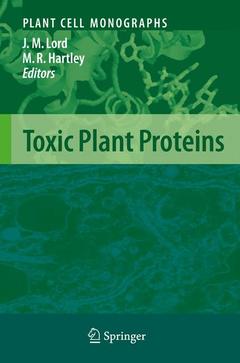Many plants produce enzymes collectively known as ribosome-inactivating proteins (RIPs). RIPs catalyze the removal of an adenine residue from a conserved loop in the large ribosomal RNA. The adenine residue removed by this depurination is crucial for the binding of elongation factors. Ribosomes modified in this way are no longer able to carry out protein synthesis. Most RIPs exist as single polypeptides (Type 1 RIPs) which are largely non-toxic to mammalian cells because they are unable to enter them and thus cannot reach their ribosomal substrate. In some instances, however, the RIP forms part of a heterodimer where its partner polypeptide is a lectin (Type 2 RIPs). These heterodimeric RIPs are able to bind to and enter mammalian cells. Their ability to reach and modify ribosomes in target cells means these proteins are some of the most potently cytotoxic poisons found in nature, and are widely assumed to play a protective role as part of the host plant?s defenses. RIPs are able to further damage target cells by inducing apoptosis. In addition, certain plants produce lectins lacking an RIP component but which are also cytotoxic. This book focuses on the structure/function and some potential applications of these toxic plant proteins.




